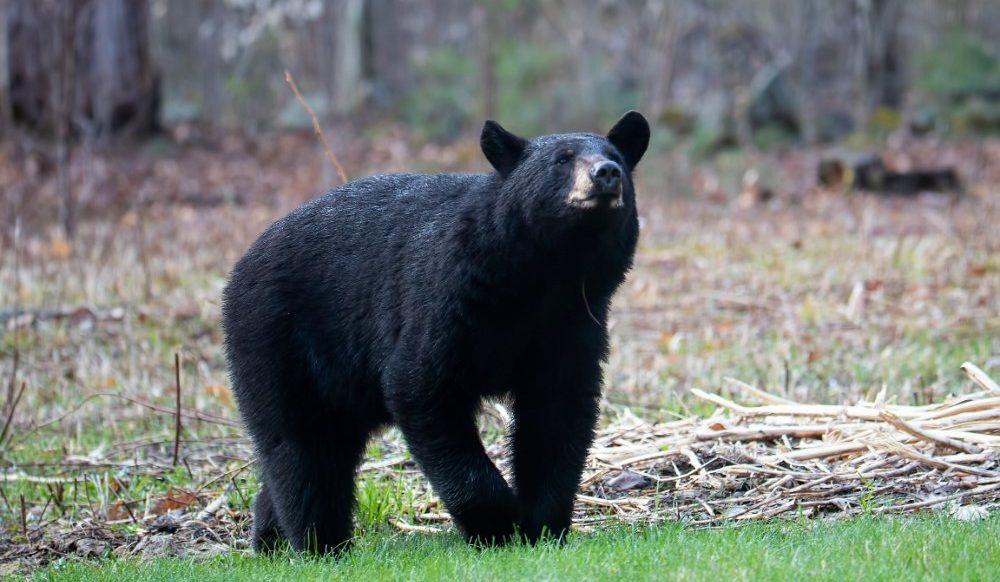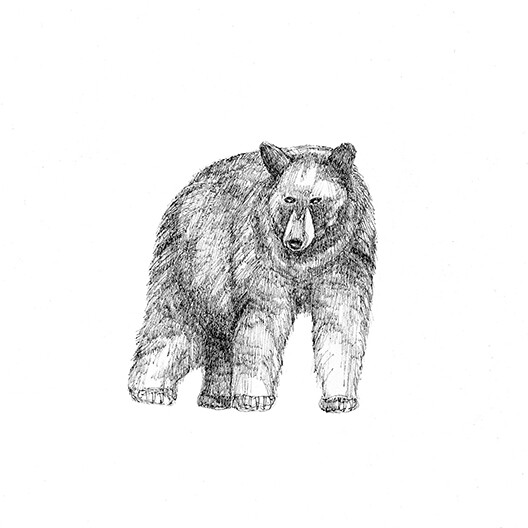
The Last Man in Willapa
Before, there were bears. Then there was
Weyerhaueser, and Crown, and hounds. Together,
hound-hunters and timberbeasts wiped out
the black bears of Willapa, who had a taste
for sweet cambium of Douglas-fir. When
the companies pulled out, and hounds were banned
from the hunt, the bears began to come back.
More and more people saw black bears here.
Birdfeeders went down. Rumors flew. The years
went by. Everyone, it seemed, was seeing bears.
Everyone, that is, except him. He saw a puma, he saw
bobcats. He saw otters and mink and muskrats. He even saw
the elusive aplodontia, miscalled mountain beaver.
As for bears—He couldn’t find one for the life of him.

Bear sketch (c) Susan Morgan
Then came a day when the hired hand ran in
from the woods. He’d met a bear, “a big one,” he said,
by the fire pit. They couldn’t spot it again, but found
its big splat, made of wild honeycomb. Days later,
another, full of chunky pears. And what happened
in between? Walking down the mail path,
the Last Man in Willapa to see a bear
saw a bear—right beside his mailbox.
Poem (c) Robert Michael Pyle, 2020
Featured Image: American Black Bear (Ursus americanus) (c) Larry Master, masterimages.org
Robert Michael Pyle, is a biologist and writer who has published twenty-four books and hundreds of papers, essays, stories and poems. His 1987 book Wintergreen: Rambles in a Ravaged Land, describing the devastation caused by unrestrained logging in Washington’s Willapa Hills where he lives, won the John Burroughs Medal for Distinguished Nature Writing. His books since then include Where Bigfoot Walks: Crossing the Dark Divide, The Thunder Tree, Chasing Monarchs, Sky Time in Gray’s River: Living for Keeps in a Forgotten Place, and The Mariposa Road: The First Butterfly Big Year, as well as three collections of poems, a flight of well-known butterfly books, and the acclaimed novel Magdalena Mountain. They have won two National Outdoor Book Awards and three Washington Book Awards. Brand new is The Tidewater Reach, poems of the Lower Columbia River, and forthcoming in September 2020 is Nature Matrix: New and Selected Essays (Counterpoint). Pyle, who founded the Xerces Society for Invertebrate Conservation in 1971, has been named Honorary Fellow of the Royal Entomological Society.


